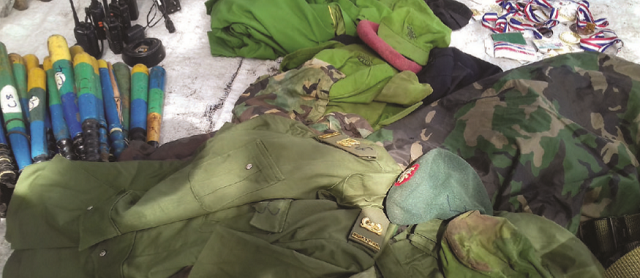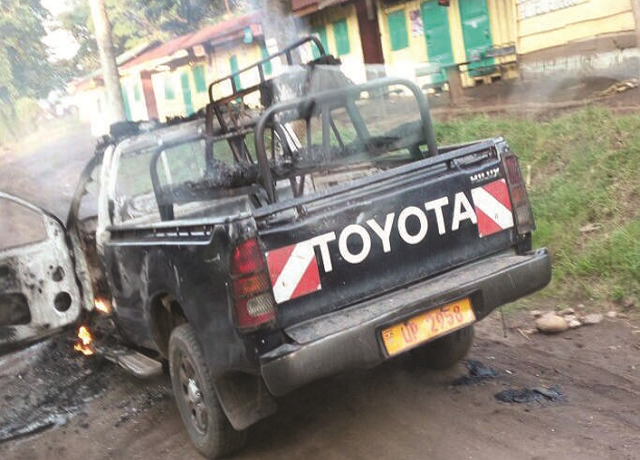
In March, the guards clashed with the government soldiers from guarding Omusinga (king). About 10 people were killed.
The Uganda security began accusing the guards of attacking police and military installations.
The government ordered Mumbere to disband the guards and nine only to perform some of the traditional rites and cook for him. But he did not act.
But why accuse Mumbere now?
The NRM government and its security services have in the past tried to link Mumbere to the Allied Democratic Forces (ADF) when they became active in the Rwenzori region in 1998. At the time, the Omusinga was living in the USA and his failure to return was a big political issue in Kasese.
The Inspector General of Police, Kale Kayihura, said the Obusinga group attacking security posts is called “Sikiryamuba” (loosely translated as “cowards never die”) and “Kilhumira Muthima” (the one who is strong-hearted).
But Mumbere and other leaders in Obusinga have always denied these allegations and offered to cooperate with government to resolve the crisis.
Winnie Kiiza, the Leader of Opposition in parliament and Kasese district women MP condemned the killings in the region calling on government to arrest the suspects and arraign them in courts of law.
“The people who are being shot dead are suspects. The law requires that you take them to court not killing in coldblood,” she said, adding that “people of Rwenzori should remain calm as this issue is resolved through dialogue.”

What people say?
“My suspicion is that the tragic events in Kasese are the consequences of an attempt to discredit the Kingdom of Rwenzururu and to frame its popular King, Charles Wesley Mumbere,” says Tom Stacey, a British author who has known the Bakonzo of Rwenzururu (Rwenzori) intimately for 62 years.
‘I spent a week in Kasese last month, meeting people at all levels from Omusinga Charles Mumbere downwards. There was not whiff or whisper of any intension or plot to conjure a cross-border political entity among the Bayira people, who comprise the collective ethnic identity both sides of the Uganda’s border with Congo.
‘There has always been a recognition of the cultural and ethnic affinity of the Bayira, a reality welcomed by the Presidents of both Uganda and Congo.’
Stacey was attending the celebration of the 50th anniversary of Omusinga Charles’ tribal coronation, aged 14, in 1966. Stacey was a fellow champion of the self-determination of the mountain people, Uganda-side, with King Charles’ father, Isaya Mukirane, the first King of the cultural dynasty, from 1954 when the Bakonzo people were headed for permanent marginalisation and cultural extinction.
‘Attempts to frustrate or discredit the establishment of Rwenzururu’s kingdomhood by violence manipulated and groundlessly generated by hidden opponents with their own agenda have occurred before.’
****
editor@independent.co.ug
 The Independent Uganda: You get the Truth we Pay the Price
The Independent Uganda: You get the Truth we Pay the Price


